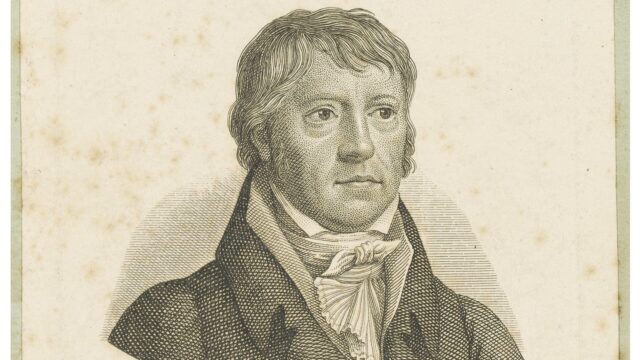Reflections on Hegel’s Death

On November 14th, 1831 the greatest romantic philosopher in the world history of thought, Georg Wilhelm Friedrich Hegel (1770-1831), died. Heidegger, along with Nietzsche, believed Hegel to be the one who completed the history of the philosophy of the Western Logos and the pinnacle of the history of philosophy and philosophy in general. If Plato was the philosopher of the beginning, then Hegel and Nietzsche were the philosophers of the end. In this sense, Hegel was the summative philosopher.
Everything is the otherness of the Other
Hegel’s political philosophy is very complex. It is based on his overall philosophical picture. As we have seen, every philosophy always has the possibility of eliciting a political dimension. Like Plato, Hegel in his philosophy of right makes this gesture, takes his whole philosophy and applies it to politics, i.e., he explicitly locates the place of political philosophy in the context of his philosophy as a whole. Through philosophy, he explains political philosophy, simultaneously clarifying politics through its metaphysical dimension.
In this respect, Hegel is a classical philosopher who implicitly includes political philosophy. In this sense, Heidegger was absolutely right when he said that if we understood The Phenomenology of the Spirit, then we could deduce everything else from it. As for reading, two fundamental works of Hegel’s are habitually suggested: The Phenomenology of the Spirit and Philosophy of Right.
Hegel’s basic idea is that there exists the primordial Subjective Spirit, the “spirit for itself” (German: der subjektive Geist). This point coincides with the theological thesis on God’s existence – the Subjective Spirit is God for Himself. In order to employ itself for the Other, this Subjective Spirit projects itself in the Objective Spirit (German: der objektive Geist) in which it becomes nature and matter, i.e., the subject projects itself in the object.
Note the fundamental difference here with the Cartesian topology which predetermined the structure of modernity. For Descartes, there is a dualism between subject and object, whereas Hegel tries to remove this dualism and overcome Kant’s epistemological pessimism through distinguishing matter or the object from the Spirit. In fact, this is nothing more than a development of the Kantian model of the absolute “I am,” but taken in a dynamic, dialectical model. If Fichte was a reaction to Kant, then Hegel is a reaction to Fichte, but in constant dialogue with Kant and Cartesianism.
Thus, Hegel argues that there exists the Subjective Spirit which reveals itself through the Objective Spirit via dialectical alienation. The Thesis is the Subjective Spirit and the Antithesis is the Objective Spirit, or nature. Therefore, nature is not nature since, according to Hegel, nothing is identical to itself, but everything is an otherness of the Other, hence the term “dialectic.”
Hegel and the Platonic Leap Down

https://alexanderdugin.substack.com/p/dugins-reflection-on-hegels-death
